
1677 (MDCLXXVII) was a common year starting on Friday of the Gregorian calendar and a common year starting on Monday of the Julian calendar, the 1677th year of the Common Era (CE) and Anno Domini (AD) designations, the 677th year of the 2nd millennium, the 77th year of the 17th century, and the 8th year of the 1670s decade. As of the start of 1677, the Gregorian calendar was 10 days ahead of the Julian calendar, which remained in localized use until 1923.

Rostock, officially the Hanseatic and University City of Rostock, is the largest city in the German state of Mecklenburg-Vorpommern and lies in the Mecklenburgian part of the state, close to the border with Pomerania. With around 210,000 inhabitants, it is the third-largest city on the German Baltic coast after Kiel and Lübeck, the eighth-largest city in the area of former East Germany, as well as the 39th-largest city of Germany. Rostock was the largest coastal and most important port city in East Germany.

"Ja, vi elsker dette landet" is the national anthem of Norway. Originally a patriotic song, it became commonly regarded as the de facto national anthem of Norway in the early 20th century after being used alongside "Sønner av Norge" since the 1860s. It was officially adopted in 2019.

Warnemünde is a seaside resort and a district of the city of Rostock in Mecklenburg, Germany. It is located on the Baltic Sea and, as the name implies, at the estuary of the river Warnow. Warnemünde is one of the world's busiest cruise ports.

The Gunboat War was a naval conflict between Denmark–Norway and Great Britain supported by Sweden during the Napoleonic Wars. The war's name is derived from the Danish tactic of employing small gunboats against the materially superior Royal Navy. In Scandinavia it is seen as the later stage of the English Wars, whose commencement is accounted as the First Battle of Copenhagen in 1801.
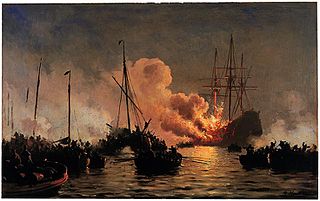
The Battle of Køge Bay (1710) also referred to as the Second Battle of Køge Bay, was an indecisive battle that took place on 4 October 1710, during the Great Northern War, in Køge Bay, just south of Copenhagen. Denmark had 26 ships of the line and 5 frigates with 1808 guns, and Sweden had 21 ships of the line and several frigates with 1512 guns. The Danish ship Dannebroge exploded and of the 550-man crew only 9 survived. The Swedish ships Tre Kronor and Prinsessan Ulrika Eleonora ran aground. Because of the weather the battle could not continue. However, the Swedish fleet managed to sink and capture a Danish convoy of transport ships that were supposed to embark a Russian invasion force in Danzig. The action in Køge Bugt checked those Russian invasion plans of Sweden.
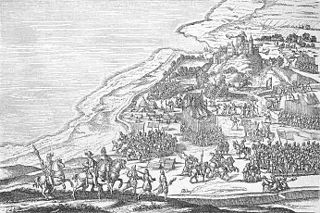
The Northern Seven Years' War was fought between the Kingdom of Sweden and a coalition of Denmark–Norway, Lübeck, and Poland–Lithuania between 1563 and 1570. The war was motivated by the dissatisfaction of King Frederick II of Denmark with the dissolution of the Kalmar Union, and the will of King Eric XIV of Sweden to break Denmark's dominating position. The fighting continued until both armies had been exhausted, and many men died. The resulting Treaty of Stettin was a stalemate, with neither party gaining any new territory.

The Scanian War was a part of the Northern Wars involving the union of Denmark–Norway, Brandenburg and Sweden. It was fought from 1675 to 1679 mainly on Scanian soil, in the former Danish–Norwegian provinces along the border with Sweden, and in Northern Germany. While the latter battles are regarded as a theater of the Scanian war in English, Danish, Norwegian and Swedish historiography, they are seen as a separate war in German historiography, called the Swedish-Brandenburgian War.
The Military timeline of Denmark is centered around an involvement in wars in Northern Europe since 793 and, recently, elsewhere.
Bjørnson is a Norwegian surname with the literal meaning "Son of Bjørn". Bjornson,Bjørnson,Bjørnsen,Björnsson and variations can refer to the following people:
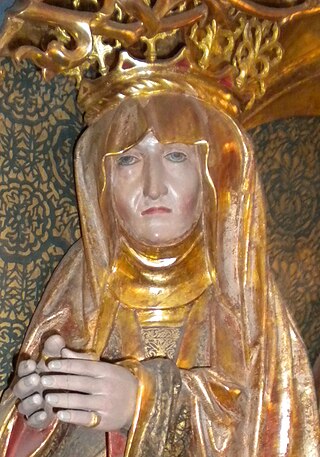
Christina of Saxony was Queen of Denmark, Norway and Sweden as the wife of King John.

Kristjan Valdimar "Val" Bjornson was an American writer, newspaper editor, and politician who served as the State Treasurer of Minnesota for more than two decades.

Operation Weserübung was the invasion of Denmark and Norway by Nazi Germany during World War II. It was the opening operation of the Norwegian Campaign.
Pros Mund was a Danish-Norwegian admiral during the Thirty Years War.
Mars, also known as Makalös, traditionally referred to as Jutehataren, was a Swedish warship that was built between 1561 and 1563. She was the leading ship of King Eric XIV of Sweden's fleet and one of the largest warships of the time. In 1564, during the Northern Seven Years' War, she caught fire and exploded during the First battle of Öland in the Baltic Sea.
Events from the 1560s in Denmark.
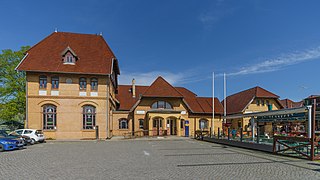
Warnemünde station is located in the seaside resort of Warnemünde, a district of the Hanseatic city of Rostock in the German state of Mecklenburg-Vorpommern. The station opened on 30 September 1903 and is located on the Neustrelitz–Warnemünde railway. It is the terminus of all three Rostock S-Bahn lines. In addition, some long-distance trains serve the station. Until 1995, it was the starting point of ferries to Gedser in Denmark. The station building and some other facilities of the station have heritage protection.
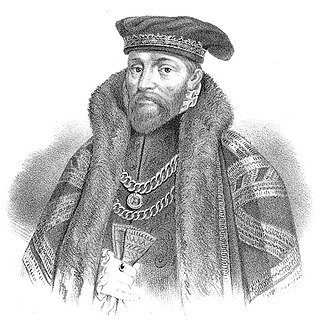
Baron Klas Kristersson Horn was a Finnish-born Swedish nobleman and naval admiral who fought for Sweden in the Northern Seven Years' War of 1563–1570.
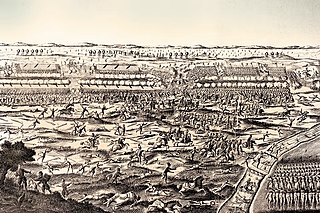
Events from the year 1565 in Sweden

Events from the year 1564 in Sweden














